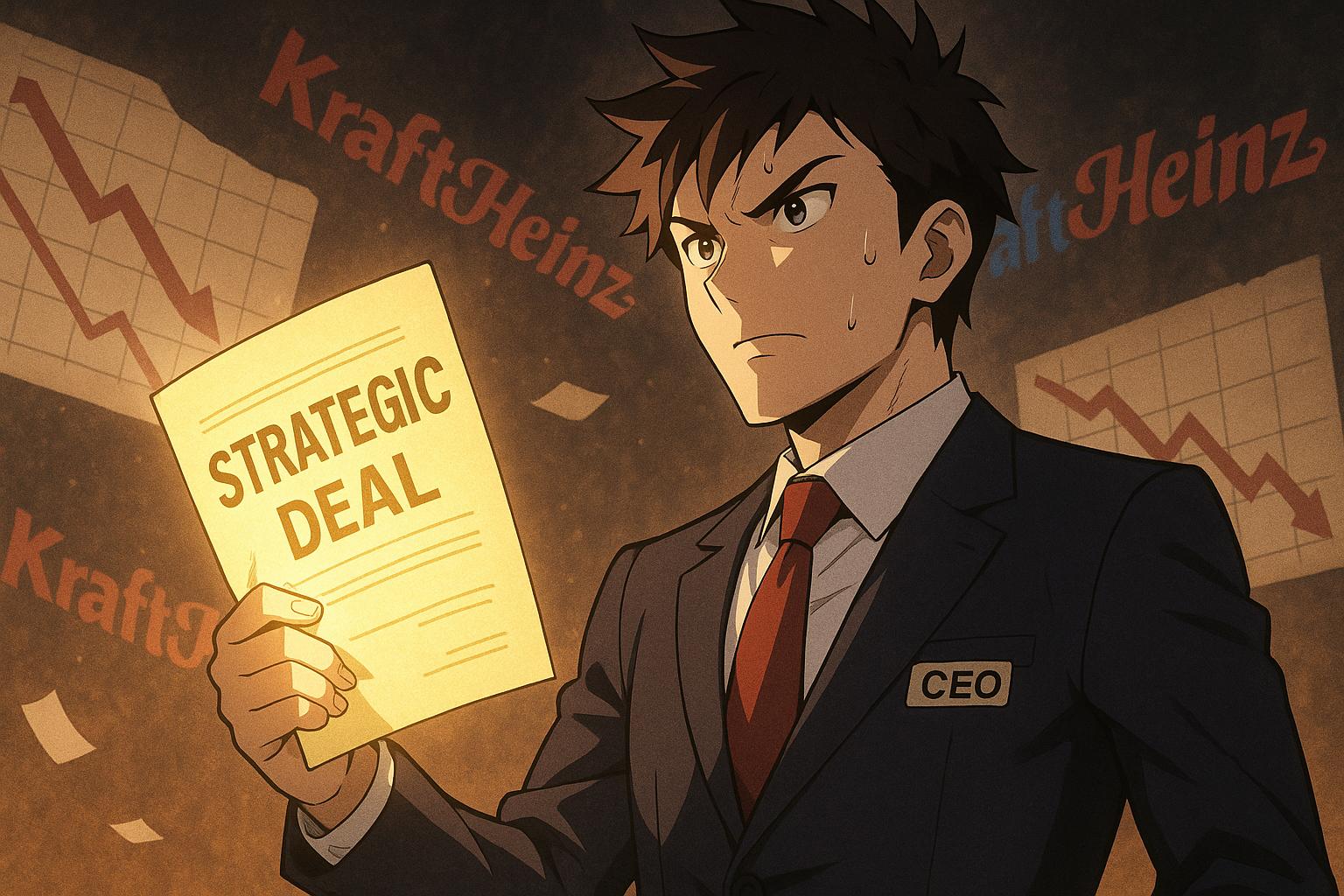Kraft Heinz is actively pursuing potential strategic transactions as the company grapples with significant challenges, including a pronounced decline in sales and profits. This decision follows the announcement of a revised outlook for the fiscal year, marking the company's sixth consecutive quarter of revenue decline. CEO Carlos Abrams-Rivera has stated that a thorough evaluation of possible deals is underway, aiming to unlock shareholder value during this tumultuous period.
In the wake of these developments, Berkshire Hathaway, which had previously held a 27.5% stake in Kraft Heinz, recently relinquished its two board seats. The move was clarified by Kraft Heinz, indicating it was not prompted by disputes regarding the company’s management or operational strategies. Analysts speculate that Berkshire's departure might signal forthcoming changes, including the potential sale of its stake as the conglomerate prepares for a leadership transition, with Greg Abel poised to succeed Warren Buffett as CEO in 2026.
Kraft Heinz's struggle with sales performance can be attributed to a shifting consumer landscape that increasingly favours healthier food options. The company’s Oscar Mayer brand, among others, is reportedly being considered for divestiture, potentially fetching around $3 billion. This is a reflection of broader market dynamics where consumers are opting for more nutritious alternatives, exacerbating the pressure on traditional packaged goods.
Amidst these strategic evaluations, the financial outlook for Kraft Heinz has deteriorated. The company recently reported a 6.4% decline in net sales for the first quarter of 2025, alongside an 8.1% drop in operating income, now forecasted to fall further than previously anticipated. CFO Andre Maciel highlighted that rising costs—linked to tariffs and increasing ingredient prices—pose additional challenges. The company's revenue in North America decreased by 7% to $4.5 billion, revealing a stark contrast to earlier projections and necessitating adjustments in pricing strategies to remain competitive.
To counteract these financial headwinds, Kraft Heinz is investing $3 billion into upgrading its manufacturing facilities across the U.S., marking its most significant domestic investment in a decade. This initiative aims not only to enhance operational efficiency but also to support long-term growth amid economic unpredictability. It is anticipated that this investment will generate approximately 3,500 construction-related jobs, although it is unlikely to result in a substantial increase in permanent employment.
Furthermore, the company is aware of potential regulatory changes, particularly concerning artificial food colours, which may impact certain products. While Kraft Heinz has introduced value-oriented items, such as larger packaging for its popular Kraft Mac & Cheese, the competition from discount brands remains fierce, prompting initiatives to deftly balance pricing against costs.
As Kraft Heinz navigates these complexities, the pursuit of strategic transactions indicates a willingness to adapt and reposition itself in an increasingly competitive market. With consumer preferences evolving rapidly, the effectiveness of its strategies will be crucial to reclaiming lost market share and securing a more stable financial future.
Reference Map
- Paragraph 1: [1]
- Paragraph 2: [2]
- Paragraph 3: [2]
- Paragraph 4: [3]
- Paragraph 5: [5]
- Paragraph 6: [6]
- Paragraph 7: [4]
- Paragraph 8: [7]
Source: Noah Wire Services
